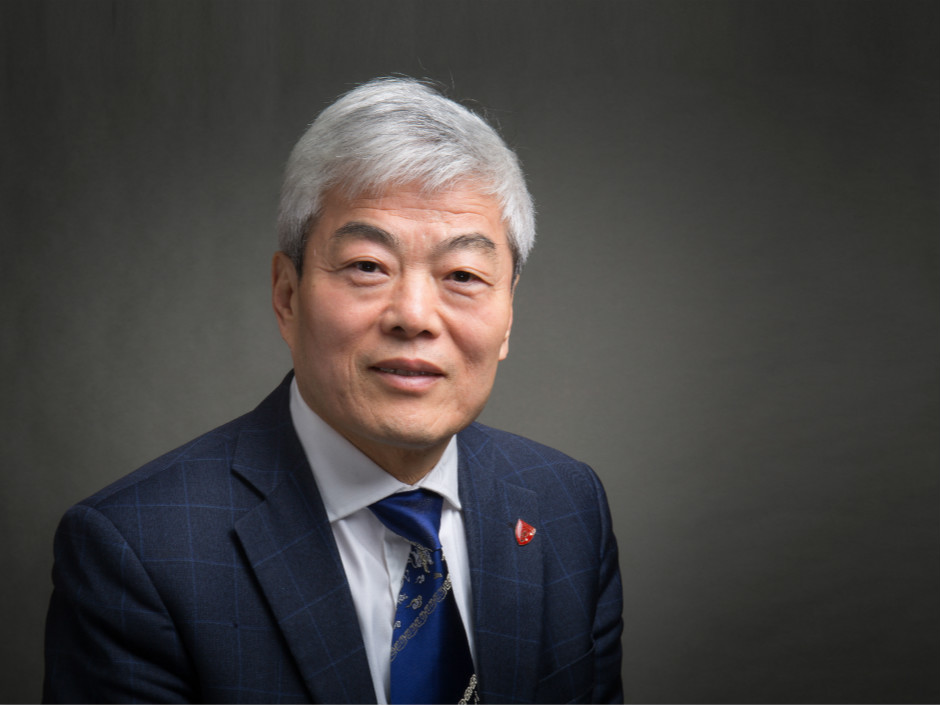13 Feb 2018
Xi’an Jiaotong-Liverpool University (XJTLU) has announced a plan to build a campus in Taicang, a county-level city under the jurisdiction of Suzhou.
Further planning and design of the Taicang campus will begin after the 2018 Chinese New Year. The campus will cover an area of 1 million square metres, including a teaching and research area of 333,333 square metres and an area with corresponding facilities of 666,666 square metres. Upon the approval by the provincial bureau of education, the campus will start enrollment in 2019 and operations in 2020. It will have capacity to accommodate more than 5,000 students by 2025.
XJTLU Executive President, Youmin Xi, elaborates here about the new campus.

Why is XJTLU building a new campus?
Professor Xi: It is an important strategic move for XJTLU to build the new Taicang campus as a centre for Syntegrative Education, rather than it being an expansion of the University.
With our current development model and positioning, XJTLU will face multiple challenges and may lose its advantages in terms of its international focus, education model and teaching quality in the future, even if it reaches its student enrollment and improved teaching quality goals.
To begin with, the gap between XJTLU and local universities included in the “985”, “211” and “Double First-class” projects is closing. These universities, already strong, receive tremendous state investment and continue to expand their international partnerships.
Secondly, XJTLU, a leader of international education partnerships in China, could fall behind with the boom of international joint venture universities and education programmes developed between overseas institutions with higher international profiles and Chinese universities that are more strongly supported by local governments.
In addition, it will be harder for XJTLU to stand out globally being located in China as other overseas universities start opening their campuses in China.
It is possible that the relative advantages XJTLU has gained over the past decade will be challenged and even compromised with the new wave of education reform.
So how can XJTLU maintain its competitive advantages? The only way is to draw on its innovative heritage and focus on strategic innovation. This means foreseeing the problems and challenges of the future and building on its current strengths which offers a unique XJTLU solution through innovation in global education issues.
Therefore, the Taicang campus is a key move in XJTLU’s strategic plan to deepen education exploration and raise XJTLU to a higher level through its experiments on the Taicang campus.
What will be the focus of Taicang campus ?
Professor Xi:The Taicang campus will focus on:
• syntegrative education to cultivate international industry elites who can thrive in the age of artificial intelligence and robots
• a new form of university and campus
• the new model of deep cooperation between the university, businesses, local communities and society at large.
The advent of artificial intelligence and robots will lead to the replacement, transformation, upgrading and birth of new industries, requiring many new types of talented individuals who can adapt to and lead this change. They will be well-rounded yet specialised, know their industries thoroughly and be able to mobilise resources and lead people.
Built on the continuously improving education model for professional elites, Syntegrative Education will build on general education by integrating professional, industry and management education. This will develop students who aspire to, and have the talent for, entrepreneurship into international industry elites who can lead their industry by harnessing the power of AI and robots.
Acquiring knowledge is becoming increasingly convenient as globalisation, the internet and smart technology break down the barriers between the traditional university campus and the outside world.
Let’s imagine what learning in the future would be like. A person may start out working on jobs that are available and of interest to him or her after learning basic knowledge and skills in his or her younger years, and then continue studying depending on what is necessary for their career advancement. Lifelong learning will thus become the norm and replace the typical trajectory of completing a four-year undergraduate, two-year graduate or three/five-year PhD programme.
People will be more likely to teach themselves using the resources of universities and the internet, or go back to school for full-time study at any stage of their life. This gives us some ideas about the possible form of a university and the function of a physical campus in the years to come.
And what if we imagine our life in the future. Human beings will be liberated from traditional work as AI technology matures and robots are widely used. They will need more means to make their life interesting with their increasing leisure time. Innovation will be indispensible and there will be more jobs that demand creativity. So how can universities help people to continuously create?

Therefore, we can envision a future university to be a centre of learning and resources, a community of research and development, an innovation hub and a liaison between industry, academia, research centres and society.
Students will learn through interaction with teachers and classmates, experiment with ideas using resources and facilities, look for answers in a research and development centre, apply their technology or business model in an innovation hub, and realise the potential of their products or services through the connections between industry, academia, research centres and society to further promote progress in society. In short, such a university will provide a comprehensive learning ecosystem and an environment for lifelong learning and the realisation of creativity.
The Taicang campus will:
• develop in-depth connections between the university, business, industry and society to cultivate talented individuals, facilitate industry transformation and promote the development of society and civilisation
• focus on developing industry elites and instead of adding several new programs or relocating programs from the current campus, we will build schools specific to industries that will dominate the future. Education about industries and management will be the main focus in addition to professional and general education
• investigate industries that have great potential in the future and build these schools in partnership with pretigious domestic and international businesses. The plan for specific industries is still in development, but will include AI and robots, big data and deep computing, the industrial internet of things, urbanisation and city development, healthcare and entertainment.
The Taicang government will build the Taicang campus, located in the High-Tech Industrial Development Zone of Taicang, as a Syntegrative Education centre in line with XJTLU’s vision of the new university. The development of surrounding communities, industrial layout and urban planning will include XJTLU’s input so that XJTLU can fulfill its mission to promote a green modern society in this new era.
In this way, XJTLU will improve the operation of society by mobilising social resources through its international network and knowledge pool. The process will lead to a new form of university and a new model in which the university and society will collaborate at a deeper level.
Why was Taicang chosen for this new campus?
Professor Xi::The new campus for Syntegrative Education needs to be close to XJTLU. Taicang is well situated, about 50 kilometers away from Shanghai and the XJTLU campus in Suzhou Industrial Park.
Because the Taicang campus focuses on developing industry elites, the location needed to be near established industries and industrial resources. The great number of German businesses and joint ventures in Taicang provides a favorable environment for our experiment.
Taicang is a scenic city and an ideal place for education.
Finally, this would not be possible without the support of the Taicang Municipal Government.
By Bo Kou, edited by Jacqueline Bánki
13 Feb 2018
RELATED NEWS

New XJTLU campus announced during state visit by UK Prime Minister
Plans for a new campus for Xi’an Jiaotong-Liverpool University were unveiled today as the UK Prime Minister Theresa May continues her state visit to China ac...
Learn more








